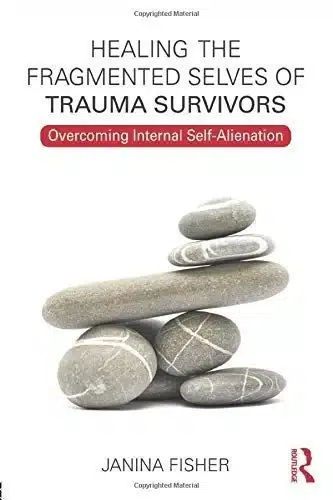In this free hour-long training, you’ll learn to:
- Unravel the link between trauma, the brain, and addiction.
- Spot signs of autonomic dysregulation in clients so you use the right tools with the right clients
- Pick the right interventions for traumatized individuals
- Utilize the brain's power in the recovery process.
- Apply effective mindfulness-based treatments that are both healing and stabilizing for your client
Did you know 40-70% of addiction recovery clients have experienced trauma? Therapists often grapple with clients battling both trauma and addiction.
Past wisdom said: treat trauma only after sobriety. Or: underlying trauma is the first priority. Confusing, huh? Reality says: Only strategies that address both trauma and addiction truly work.
Join Janina as she dives deep into trauma, addiction, and shares personal insights, capped with a Q&A session.
When unresolved trauma intertwines with addiction, it can become a perilous cycle that traps individuals in a pattern of pain and dependence. The key to breaking this cycle? Understanding. Dive deep into the complex relationship between trauma and addiction in this illuminating free webinar with renowned expert Janina Fisher, Ph.D.
What is the relationship between trauma and addiction?
Understanding the intricate relationship between unresolved trauma and addiction is critical for anyone working in the mental health or addiction fields. Many struggling with substance abuse have deep-seated traumas that fuel their addictive behaviors. By exploring the origins and connections, therapists and caregivers can unlock more effective and compassionate methods of treatment.
Does trauma cause addiction?
While not every trauma survivor turns to substance abuse, the statistics are clear: there's a significant link between traumatic experiences and addictive behaviors. Addressing the root causes of trauma can be the first step towards healing and recovery.
Trauma Informed Addiction Treatment Training
To provide the most effective treatment, understanding both trauma and addiction is essential. Trauma and addiction training integrates insights from both areas, crafting a holistic approach. By recognizing the signs of trauma and understanding its impact, professionals can develop more targeted and empathetic interventions.
Top 3 Forms of Trauma That Lead to Substance Abuse, Other Addictions
- Childhood Trauma: The scars of childhood trauma can manifest in various ways, often leading to addiction in later life. By understanding how childhood trauma leads to addiction, therapists can begin to untangle the webs of pain and dependency.
- Physical and Emotional Abuse: Abuse, in any form, can push individuals towards substances as a means of coping. Recognizing the signs of abuse and its after-effects is essential.
- Traumatic Loss: The sudden loss of a loved one, or experiencing devastating events can propel individuals towards addictive behaviors as they grapple with overwhelming grief and pain.
Free Trauma Training with Janina Fisher
Janina Fisher, a leading voice in trauma and addiction psychology training, offers insights into the trauma addiction cycle and shares invaluable techniques for therapists. With an emphasis on "Stabilizing the Unstable," this training delves into the heart of self-destructive and addictive behaviors like eating disorders, suicidality, and self-harm.
Mental Health and Addiction Courses Online
In an era where remote learning has become the norm, it's crucial to have access to high-quality mental health and addiction courses online. This free trauma training, among others, showcases the power of online resources in equipping professionals with the knowledge they need.
Stabilizing the Unstable: A Deeper Dive
Suicidality, self-harm, and addictive behavior are not isolated issues. All are statistically linked to a history of trauma. They stem from internal conflicts that cause significant distress: "Do I live or do I die? Do I drink or try to stay sober? Do I seek momentary relief or employ coping strategies?"
These behaviors arise from internal 'parts' attempting to cope. Anger, self-harm, and suicidality might be ways to ward off potential threats, while addictive behaviors can be means of escaping distressing emotions. Without proper intervention, this can lead to a pattern of crisis and relapse.
To truly stabilize the unstable, it's crucial to help clients view their self-destructive impulses differently, breaking the cycle of pain and addiction. Janina Fisher's approach, rooted in a parts perspective, offers a roadmap to achieve this.
Dive into a realm of understanding with this trauma and addiction training. Explore the mysteries of the mind, learn from real-life cases, and equip yourself with tools to make a difference. Sign up now for an enlightening journey with Janina Fisher.


Janina Fisher, PhD, is a licensed Clinical Psychologist and Instructor at the Trauma Center, an outpatient clinic and research center founded by Bessel van der Kolk. Known for her expertise as both a therapist and consultant, she is the author of the recently released Healing the Fragmented Selves of Trauma Survivors, and also past president of the New England Society for the Treatment of Trauma and Dissociation, an EMDR International Association Credit Provider, a faculty member of the Sensorimotor Psychotherapy Institute, and a former Instructor, Harvard Medical School. Dr. Fisher lectures and teaches nationally and internationally on topics related to the integration of research and treatment and how to introduce these newer trauma treatment paradigms in traditional therapeutic approaches.
Copyright 2023 Academy of Therapy Wisdom. Privacy policy


